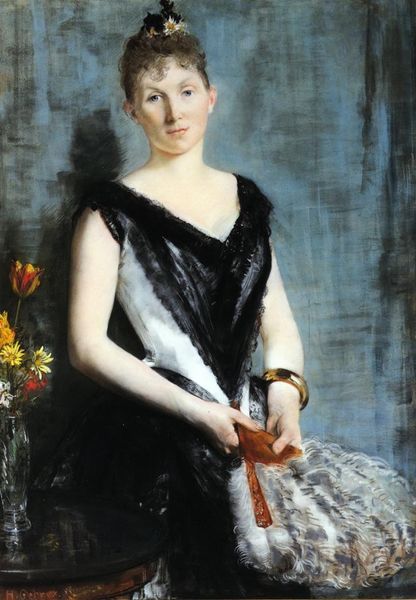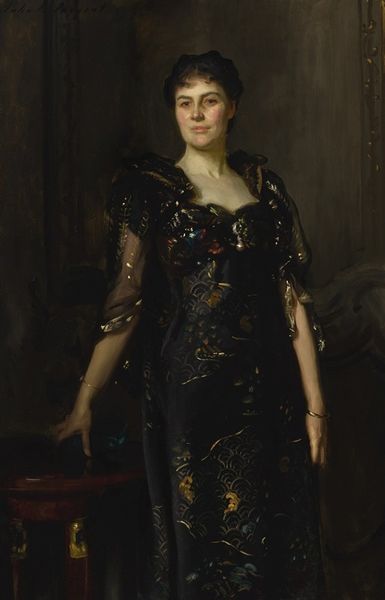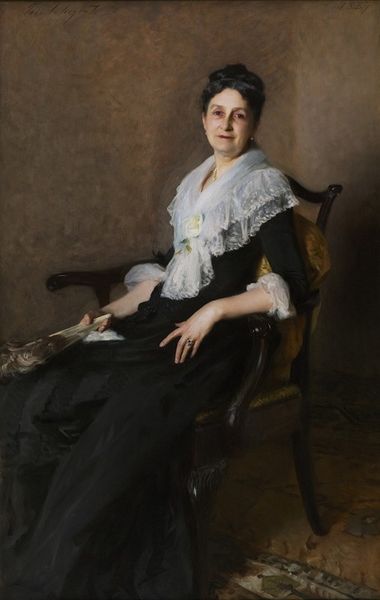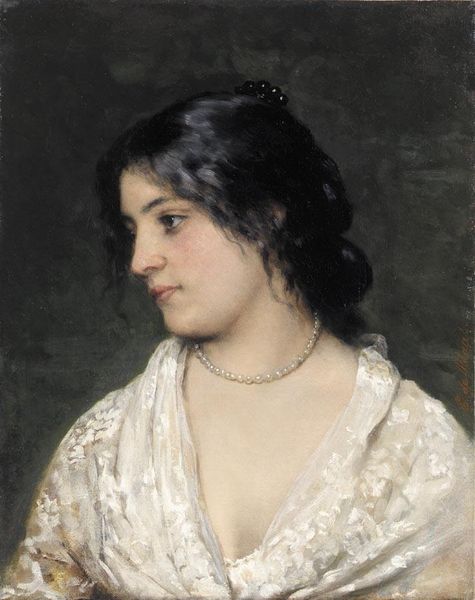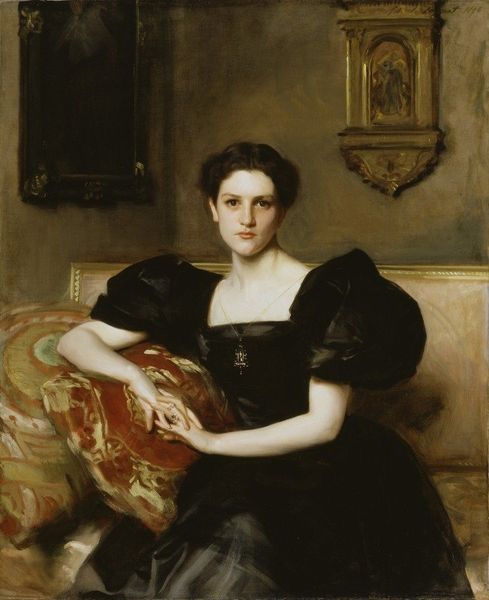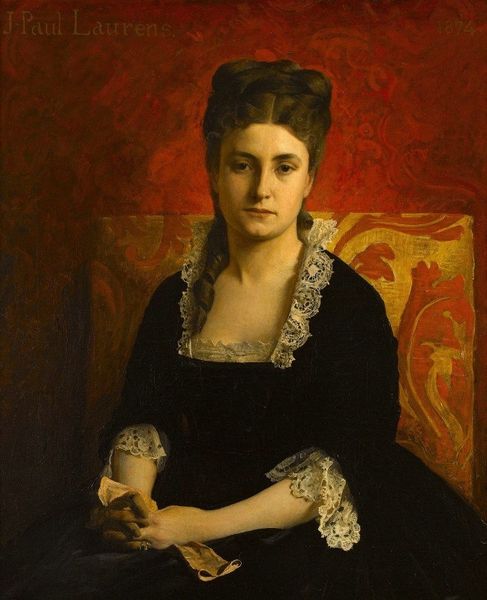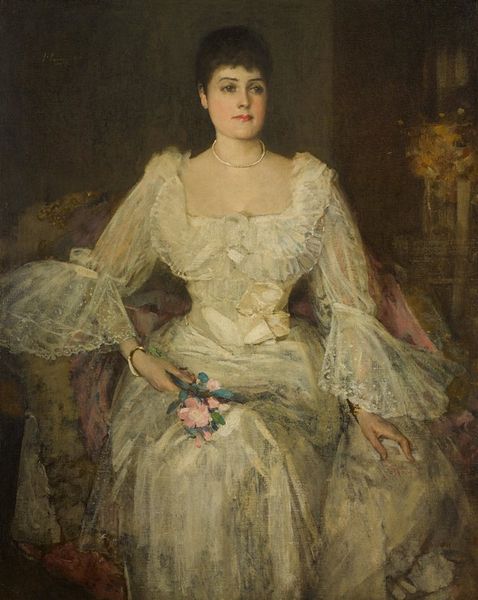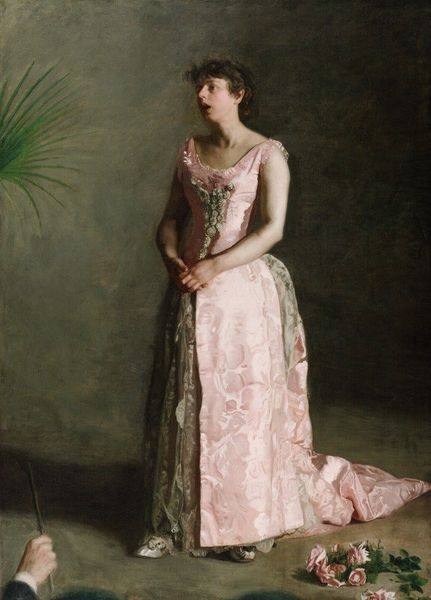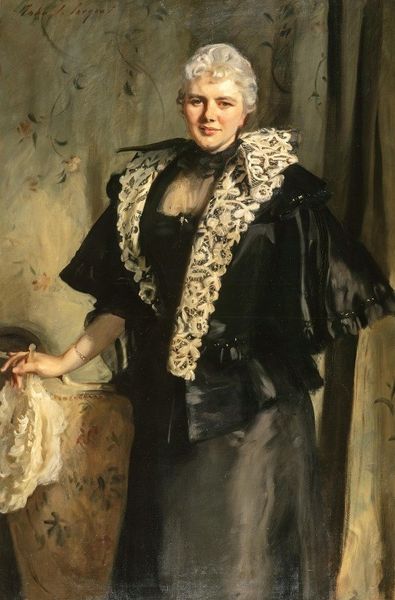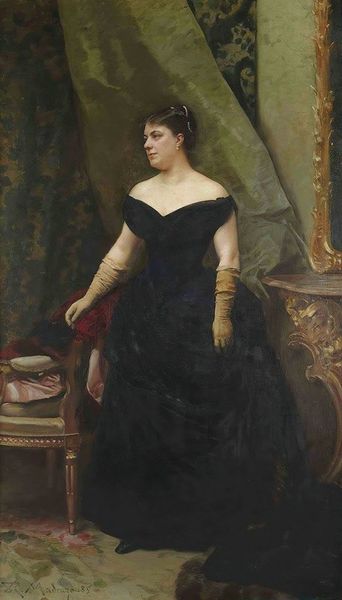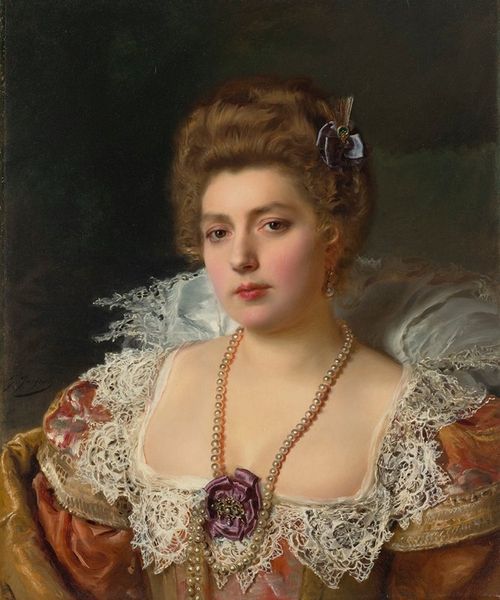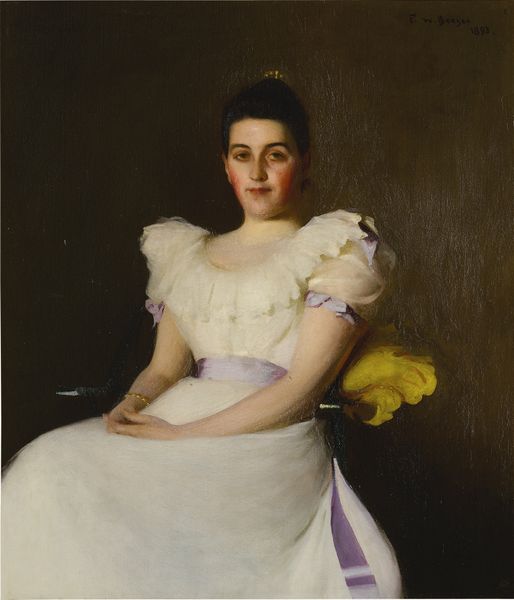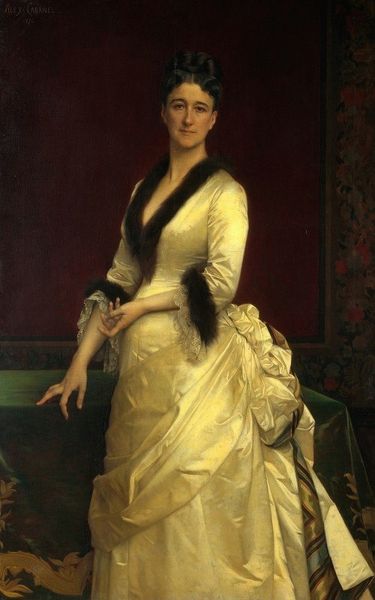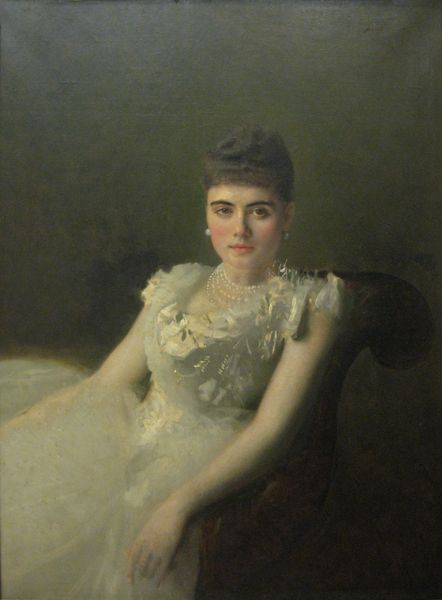
painting, oil-paint
#
portrait
#
figurative
#
painting
#
impressionism
#
oil-paint
#
intimism
#
academic-art
#
realism
Copyright: Public Domain: Artvee
Curator: This is Thérèse Schwartze's 1890 oil painting, "Sophia Adriana de Bruijn." Editor: She projects an air of quiet dignity, wouldn't you say? A bit reserved, almost melancholic. The muted palette certainly contributes. Curator: Absolutely. Schwartze was a successful portraitist in Amsterdam, known for her ability to capture the personalities, often of powerful women, within specific societal frameworks. Let's consider the sitter, Sophia de Bruijn, within the burgeoning women's movements of the late 19th century. Editor: That medallion at her chest, positioned centrally, seems incredibly important. Note its circular form, a classic symbol representing wholeness, eternity... the divine feminine, perhaps? And then the brooch again at her wrist. I find that striking. The mirroring, and the hand open in gesture almost pleading Curator: An astute observation. Such personal adornments weren't merely decorative. They often signaled allegiance, family heritage, or personal convictions. Consider how her slightly off-the-shoulder dress hints at some societal convention and constraint. Editor: You see those golden tones, the faint grid of her dark gown that looks like the pattern of a cage... Curator: And consider also how Schwartze, as a Jewish woman artist achieving prominence, navigated complex social and professional dynamics. Her depictions of women become crucial sites for examining representation and power. Editor: So this "cage" I noticed might have reflected not only the expectations imposed on upper-class women but on Thérèse Schwartze too as she herself progressed in this field. The layering of constraints… it’s all there in the semiotics! It almost feels as if the medallion, at the front is locking in its presence. Curator: Exactly. Through careful analysis of detail, the social circumstances under which artwork came to life is so fascinating, Editor: By understanding those broader, historical influences embedded within the art itself, we can unlock such new layers of its meaning and cultural relevance for us today. Thank you for elucidating so clearly! Curator: It’s important to think how artworks change throughout their lifetimes! These reflections should inform modern day culture in my opinion.
Comments
No comments
Be the first to comment and join the conversation on the ultimate creative platform.
